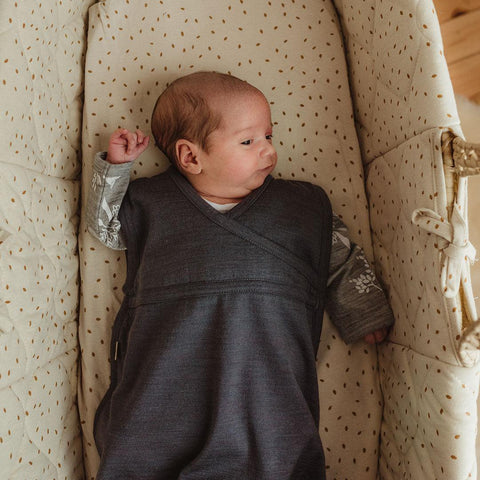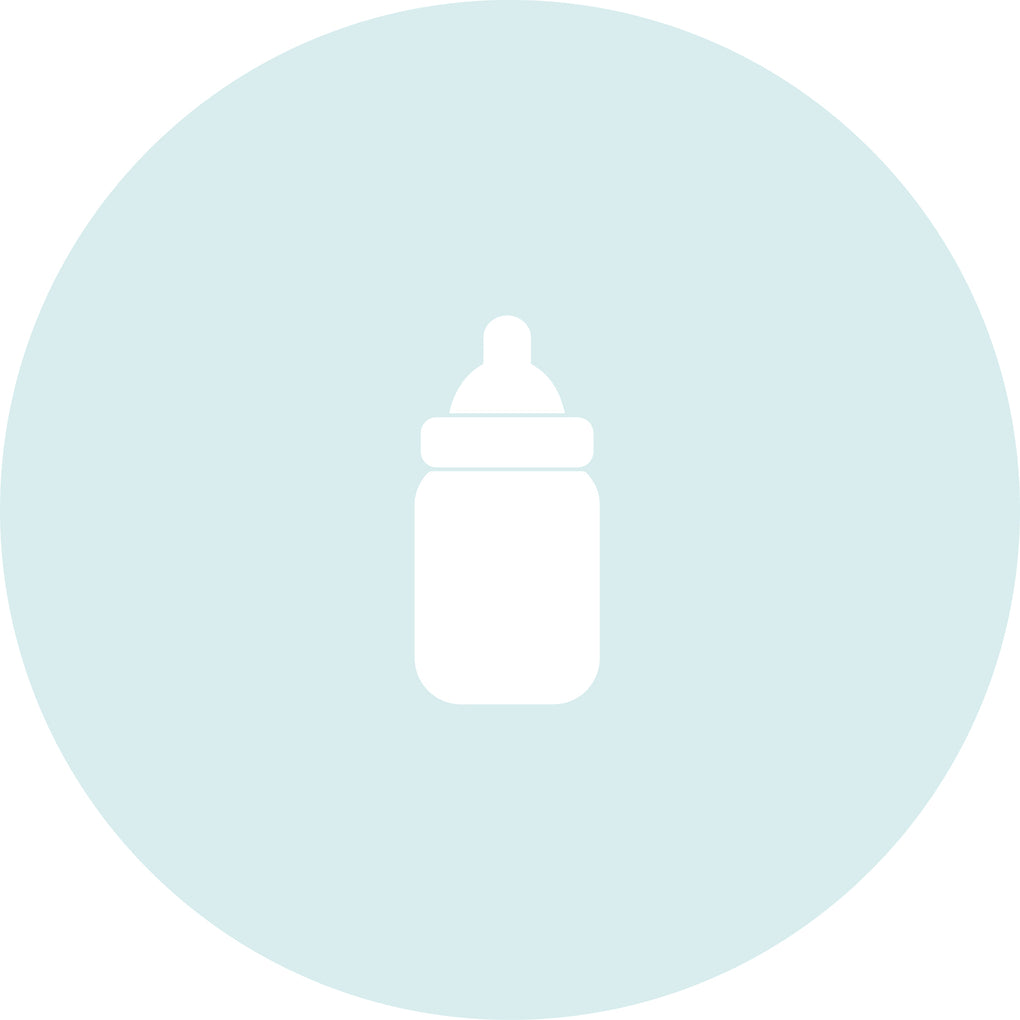In the early days after the birth of a child, we totally get why parents feel like a fish out of water. You often find yourself at a loss, unable to decipher whether your baby's cries indicate hunger, discomfort, fatigue, or something else entirely, as they all sounded alike.
Routines may sometimes receive unfounded criticism, but the reality is that babies thrive on them. They prove equally beneficial for you, relieving them of much guesswork concerning baby's daily needs. With a consistent routine in place, you can become better equipped to respond effectively to your little one, having a good grasp of their hunger or tiredness cues.
There are various reasons why you might be contemplating initiating a new sleep routine for your little one, or wanting to make alterations to the existing one. Perhaps they've grown weary of "going with the flow" and seek greater consistency and predictability in their daily life. Alternatively, your little one may have outgrown their previous sleep schedule, necessitating an update.
In this article, we will guide you through the process of introducing a new sleep routine for your baby and offer tips on making the transition as smooth as possible.
In this article:
• What constitutes a sleep routine?
• When is the right time to establish a sleep routine?
• How to adjust your baby's sleep schedule
• Understanding sleep consolidation
• How long does it take to establish a solid sleep routine?
• Assisting your baby in adapting to a new routine
What constitutes a sleep routine?
Have you even heard the term "routine," and immediately envisioned rigid, inflexible schedules that must be adhered to without exception? Don’t fret, that's not what we're advocating here.
When we talk about sleep routines, we're referring to maintaining a consistent and predictable daily rhythm that aligns with your baby's age-specific sleep requirements, adapting as those needs evolve and mature. It's not about coercing your baby into a rigid structure that's unsuitable for their age, developmental stage, or settling ability.
The schedules in our Sleep Programs are crafted to synchronise with your baby's circadian rhythm (or internal body clock), leveraging their natural energy fluctuations throughout the day. This approach ensures that your baby sleeps at the right times and for the appropriate durations, encouraging smoother settling, consistent naps, and a good night's sleep.
When is the right time to establish a sleep routine for your baby?
You may find yourself eager to embark on your baby's new sleep routine, only to be blindsided by unforeseen events. A new tooth is on the horizon, or a bout of illness has gripped your household. Perhaps a looming holiday plans to delay the process. Before you know it, your once eagerly anticipated baby's sleep routine has been postponed for another three months.
The truth is, there's never a perfect moment to start a new routine with your little one, as life is always teeming with challenges like developmental leaps, vaccinations, sleep regressions, holidays, teething, and daylight-saving time.
Sometimes, you simply need to seize the opportunity and make it work in the present. The only instance where you might want to refrain from initiating a new routine or making significant changes to the existing one is when your baby is unwell. Altering their routine during illness is likely to be a struggle for both you and your baby, so it's advisable to wait until they're feeling better.
How to adjust your baby’s sleep schedule?
Depending on your baby's existing routine, you may need to make minor adjustments or undertake more extensive changes when establishing a solid sleep routine. These changes can include:
- Modifying your baby's sleep environment
- Adjusting their awake times and nap durations during the day
- Tweaking their bedtime
- Managing their overnight awakenings
- Setting a morning wake-up time
Although it may seem overwhelming, the good news is that you don't have to tackle everything simultaneously. We typically recommend implementing changes in the following order:
- Start by creating an ideal sleep environment for your baby, which includes a dark room, white noise, and swaddling or a baby sleeping bag. This alone can make a significant difference in your baby's settling and sleep cycle consolidation.
- Next, focus on optimising your baby's daytime sleep by aligning it with age-appropriate awake times and nap durations. This will help ensure that they strike the right balance between wakefulness and sleep during the day, making bedtime settling and night-time sleep more manageable.
- If your baby is over 3-4 months old, consider teaching them how to self-settle, particularly when it comes to daytime naps and achieving longer overnight sleep stretches.
Understanding sleep consolidation
A few days into the new sleep routine, you might experience some initial disappointment as things appear to be worsening rather than improving. Your baby may exhibit behaviours such as catnapping during the day, early wakeups from long midday naps, resistance to settling at nap times or bedtime, increased overnight awakenings, or early mornings.

This phase is what we refer to as "sleep consolidation." Your baby has grown accustomed to their previous sleep pattern, which might have entailed significantly more or less sleep than they're currently receiving. It's like hitting the "reset" button on their internal body clock, which can make them a little fidgety at first.
Whenever you adjust the balance between wakefulness and sleep in your baby's daily schedule, it inevitably impacts their night's sleep as they adapt to this new equilibrium. The reverse can also happen: if your baby experiences an improvement in night sleep, their daytime naps may briefly suffer.
The good news is that sleep consolidation is just a passing phase. Your baby might take a bit of time to get used to the new routine, but sticking with it consistently will help speed things up.
How long does it take to establish a solid sleep routine?
Initiating a new sleep routine for your baby can bring initial excitement, but it's not uncommon to feel disheartened a few days later when it seems like there's little progress. Establishing a solid sleep routine doesn't occur overnight; it requires patience. The key is to maintain consistency and have faith that your baby's sleep will eventually improve.

We typically recommend allowing at least two weeks for your baby to adapt to their new routine. This is when you're most likely to encounter the effects of sleep consolidation. The more consistent you are with your baby's nap times, the quicker this phase will pass.
Remember, older babies might take a bit longer to get used to the changes because their sleep habits are pretty well set. So, if you're shaking things up big time with your baby's sleep routine, get ready for a more extended adjustment period.
How to help your baby adapt to a new routine
The key to helping your baby get used to a new sleep routine is to keep things steady with the changes you're making. It's easy to want to go back to the old routine when things don't seem to be working, but remember, you made the change for a reason. Your baby is trying to get their sleep in order, so making more changes can mess things up. Stick to the plan, and as the sleep adjustment phase rolls by, you'll start to see things getting better.
Your baby is putting in some serious effort to get their sleep on track, so the last thing you want is to shake up their routine again. Stick to the plan, and once that tricky sleep consolidation phase is in the rear view, you'll start to see things falling into place. And let me tell you, you'll be glad you stuck with it!
Now, I get it, when you're absolutely desperate for some shut eye, it's tempting to go full throttle and change everything at once. While that might work for a few babies, others will just get overwhelmed and confused.
The truth is, there's no quick and easy fix here. Change takes time, no way around it. That's why we always suggest making one change at a time and, if you can, waiting at least a week before you switch things up again. This gives your baby a decent shot at adapting and lets you see if it's doing the trick.
























